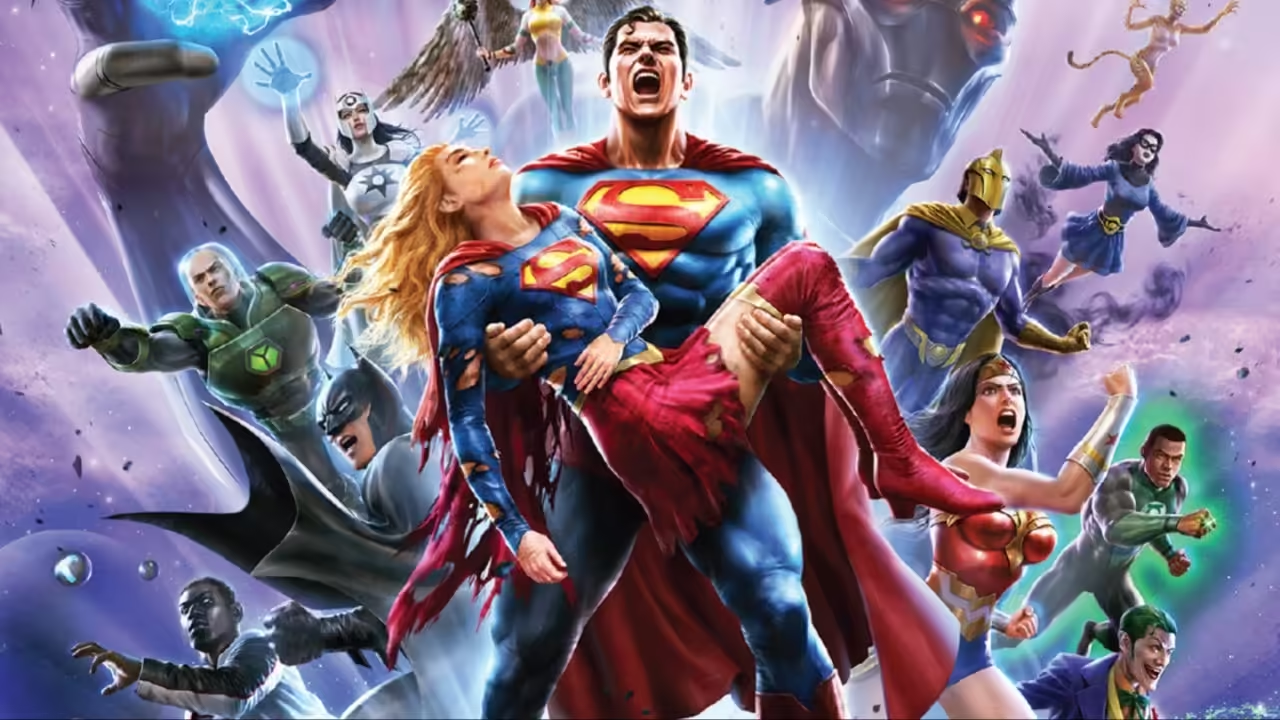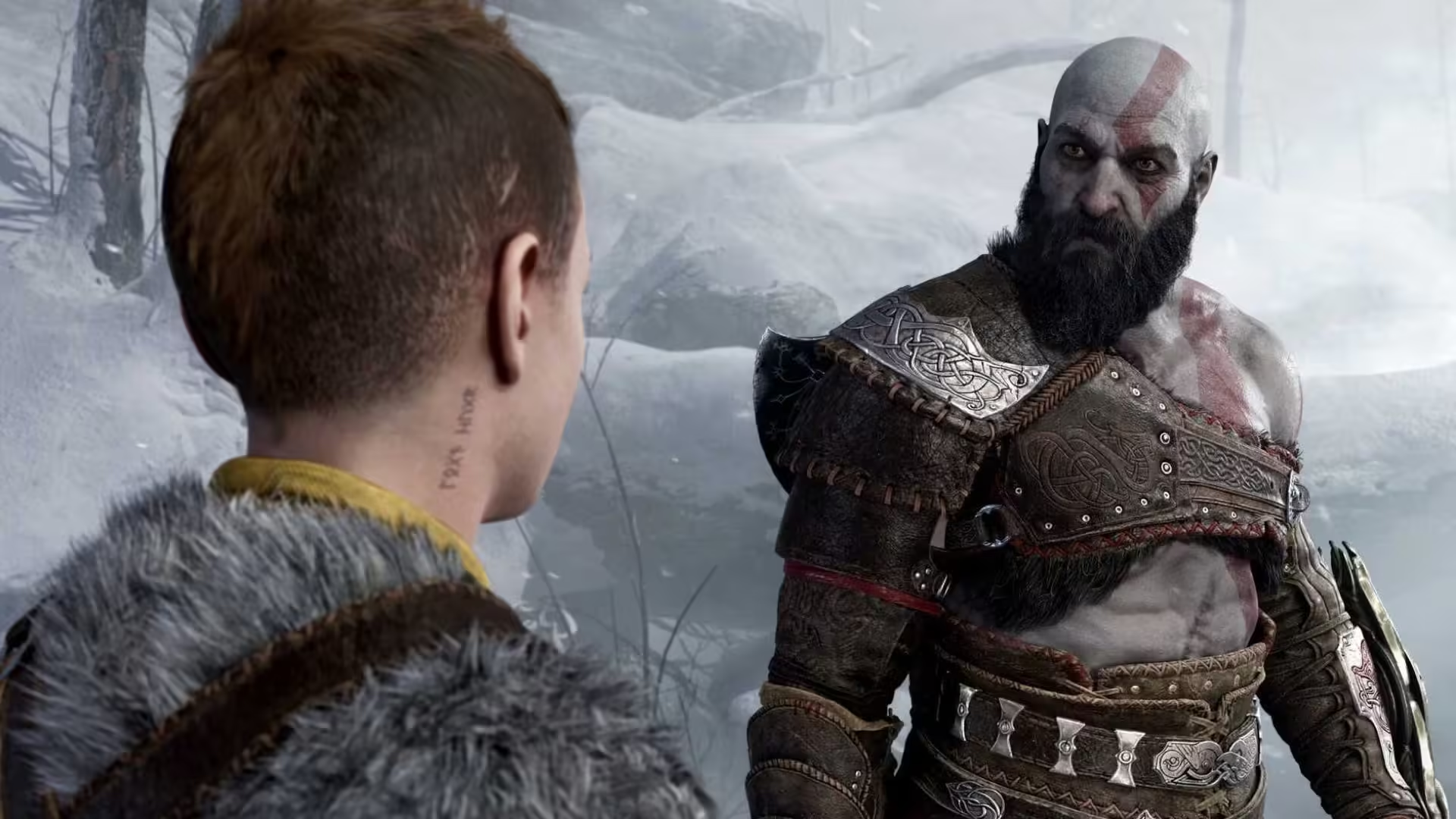Justice League: Crisis on Infinite Earths – Part Three Review
Estimated reading time: 4 minutes
Superhero stories – whether they be comics, animated series, or live-action features – are suffering at the altar of “enough.” It’s “enough” to sprinkle diversity across certain monthly comics while letting the old, white guard rest on their laurels. It’s “enough” to churn out post-Endgame MCU material that does little more than tease its audiences. In the case of DC’s animated Tomorrowverse series, it’s “enough” to expect disjointed animated lead-ins to pump fans up for multi-movie crossover events. But what happens when Justice League: Crisis on Infinite Earths – Part Three, the finale of that very event, is dead on arrival?
Writer Marv Wolfman and artist George Perez constructed their 12-issue Crisis on Infinite Earths comic event around a central objective: unify DC continuity. And director Jeff Wamester’s three-thrust stab at putting that story on screen is successful in that specific respect: It does reset DC’s animated timeline, but it does so in the most soulless manner possible. The action lacks focus, verve, and imagination. The performances are earnest but unremarkable. I’ll forgive stake-free storytelling if it manages some fun. Crisis doesn’t. But hey, it gets us from point A to B, so it’s “enough.”
The film closes out the multiversal war laid out across Parts One and Two: Cookie-cutter baddie Anti-Monitor (Ato Essandoh) is making short work of every version of the Justice League, forcing Bruce Wayne/Batman (mostly Jensen Ackles, but also the late Kevin Conroy – gracing our earholes in his brief, final appearance as the Caped Crusader) to sleuth his way to a solution that will prove costly for the Justice League. Most strikingly, it tees up emotions that go insufficiently explored. Through Supergirl (Meg Donnelly), Part Three attempts to communicate the weight these heroes constantly bear. Not just of every world, but of their own pasts, their own fumbles and fears. But we don’t spend enough time with Supergirl for her arc to matter – in this rushed state, it’s treated like a checklist of things that have to happen to her, rather than a story to be told, nurtured, and lived in. I don’t believe this is intentional (no one sets out to make a bad movie), nor do I think any of the above examples are rooted in smarminess or a desire to cheat audiences out of a good time.
Wamester, writer Jim Kreig, and company want their Crisis to be a slam dunk – you can hear it in Kevin Riepl’s somber score. Riepl lingers on those quiet moments when the characters grasp how profoundly screwed they are, creating a sense of foreboding and hinting at a more resonant viewing experience. But because Part Three, in its perpetually scattered way, fails to let these scenes – or any other scene, for that matter – breathe, they don’t live up to the fanfare. A major death in the final half-hour – if you’ve read the comics, you probably know the one – is lost amidst a flurry of characters and terminology that aren’t sufficiently explained. For the adaptation of a story that popularized the multiverse concept almost 40 years ago, Part Three is a flat, dull mess that extinguishes any excitement I may have had for what’s to come from future DC animated movies.
It’s a disappointment visually, too. The Tomorrowverse’s cartooning feels like the animated movie equivalent of overwriting, so much so that it scrubs the pain, the strength, the sheer will from these characters and their worlds and leaves us with 2D husks running around fighting for shit in which we aren’t invested. The animation has so much sheen, so much polish, that it’s difficult not to wish that the animators had gone for something even remotely akin to the emotional tumult Perez could convey in a single panel.
It’s a shame the story doesn’t work visually, because there are plenty of opportunities to go all out and all in with its spectacle. Once the Anti-Monitor’s weaknesses become clear to the Justice League, we see several heroes step up to confront him – and probably destroy themselves while doing it. The Green Lanterns join the fray, as do Superman and other DC staples who can survive in the vacuum of outer space. Of course, this presents Supergirl – and Part Three itself – with the opportunity to square off against this near-omnipotent foe. Krieg’s script doesn’t fulfill the inherent promise of a Supergirl/Anti-Monitor throwdown, but it gets damn close.









